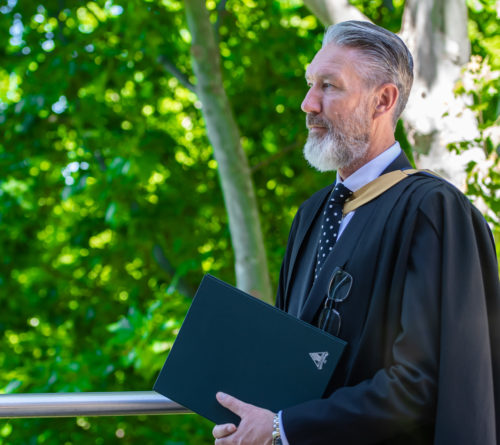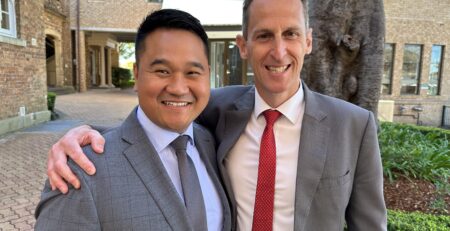From the Deputy Head Master – Summer Hill
I have little fear of contradiction when I say that I think, as a community, we have never been as preoccupied with our wellbeing as we are in 2022. We have a new Federal Parliament delivering a wellbeing budget, we have all seen articles commenting on the effect of the pandemic, particularly on young people, and a cursory internet browse entering only ‘wellbeing’ in the search engine returned over one hundred million (one hundred million!!!) news and scholarly articles on wellbeing, including at least one that hypothesises that the pandemic may even have the potential to have changed our personality[1]. I can only assume that your sons and daughters are aware of this editorial trend, and that it appears in their newsfeeds. Unsurprisingly, as someone who is interested in the wellbeing and welfare of young people, and particularly in building resilience and capacity for dealing with the normal ups and downs of life, I have been following this public commentary with interest, and occasional bemusement, to try and form a view as to whether the media is reflecting a grim reality, or whether it is, in fact, exacerbating the mental health of our community and fanning our anxieties in a metaphorical, symbiotic, echo chamber. Like many complex issues, there is probably not a simple answer.
In my search for helpful messages for young people, I stumbled across an article by Dr Adam Fraser (who came to Trinity on the staff professional development day to speak to me and my colleagues about our wellbeing as teaching and support staff) that talks about the psychology of courage. He personifies our inner voice (to whom he gives the nom de plume, Kevin), that negative voice inside our heads that makes us doubt ourselves. He reports that research on the power of visualising our unhelpful thoughts and emotions suggests that this may be a helpful strategy, and that, to his surprise, it was something that worked for him. That personifying the negative thoughts enabled him to exert more control over them. He reports that when he began sharing this story on the public speaking circuit, it was an observation that both resonated with many of his listeners, and that most people anecdotally reported that they tend to give in to their inner voice, a capitulation that is ultimately unhelpful. He suggests three strategies that may be worth sharing with your sons over dinner tonight or next week. Firstly, there is wisdom in acknowledging that almost all of us have that negative inner voice that tries to make us doubt our ability to rise to challenges. Secondly, when we accept that inner voice it, paradoxically, has less power and control over what we do and how we think. Finally, that externalising or personifying our unhelpful thoughts and emotions gives us choice and puts that unhelpful internal chatter into perspective[2].
I am aware that no one strategy is a panacea for low mood, and I am also aware that poor mental health and mental illness must be taken seriously, but I am also of the belief that talking about wellbeing, providing perspective (the glass that appears half empty is also half full), and unpacking our own life experience as adults is a helpful way to assist young people to negotiate and take responsibility for their own wellbeing, and manage their own inner Kevin.
[1] https://theconversation.com/has-the-pandemic-changed-our-personalities-new-research-suggests-were-less-open-agreeable-and-conscientious-191308
[2] https://dradamfraser.com/blog-content/2021/8/24/no-thanks-kevin
Bradley Barr | Deputy Head Master – Summer Hill
















